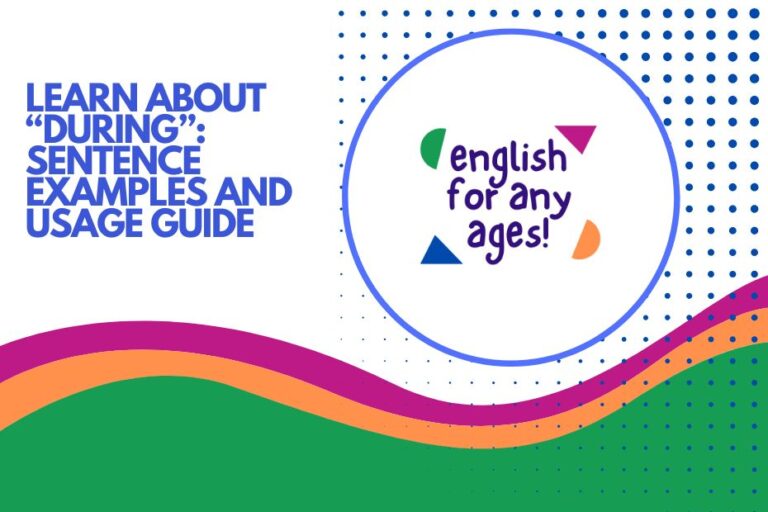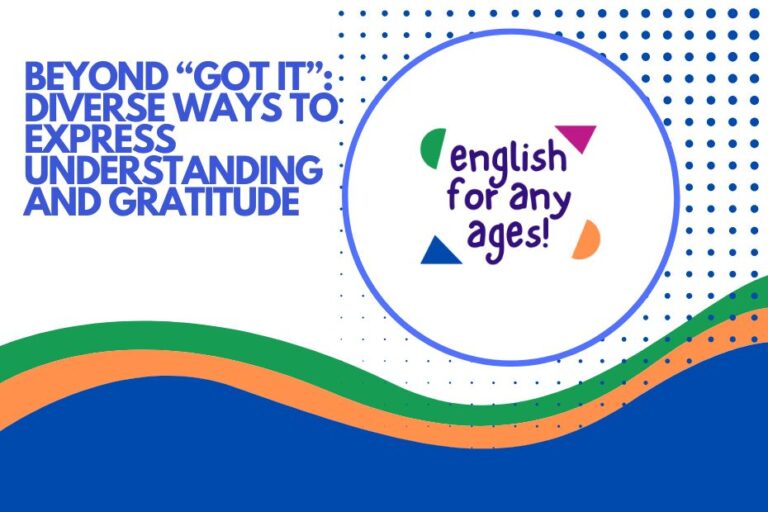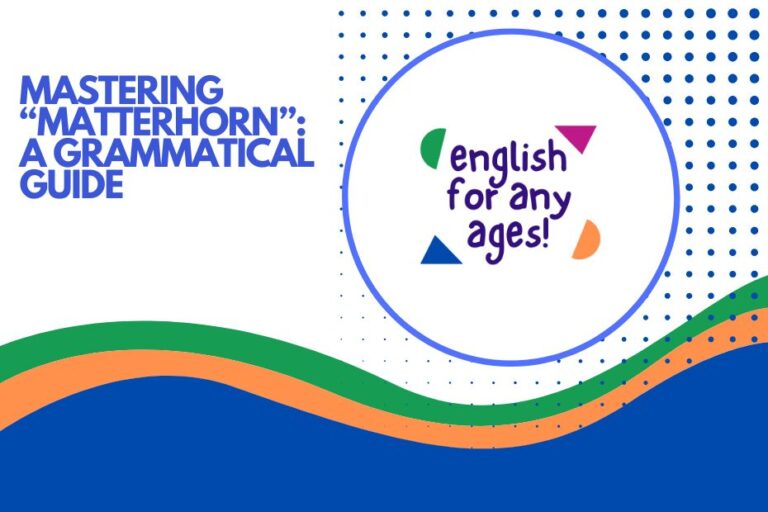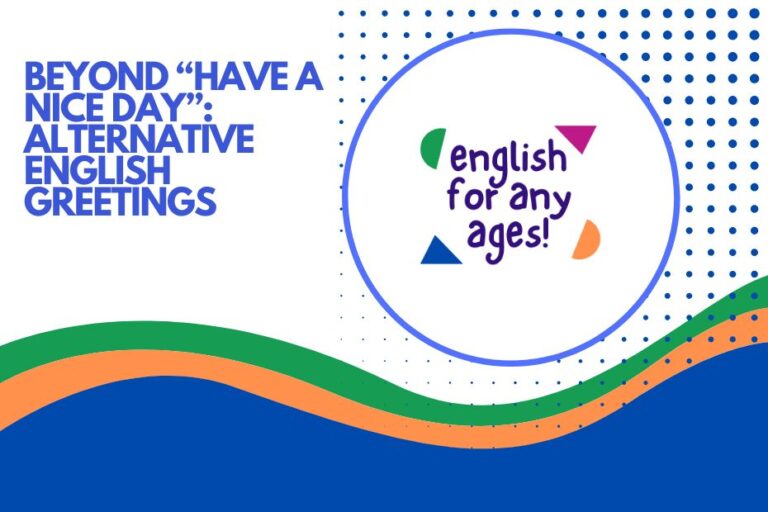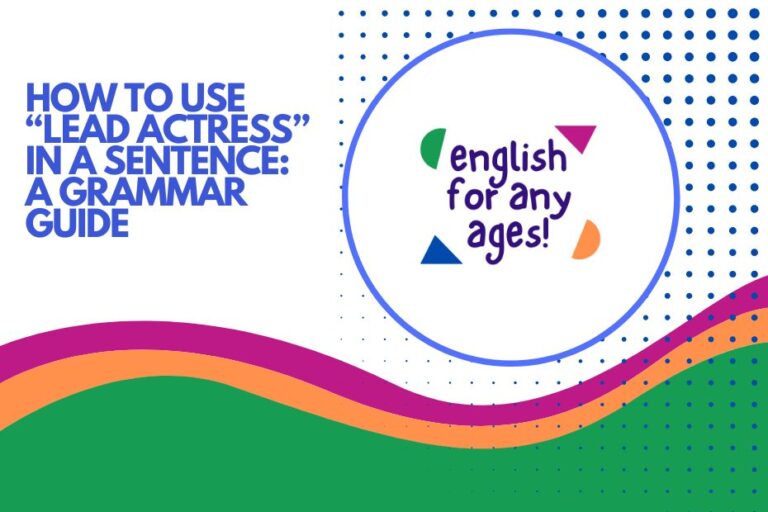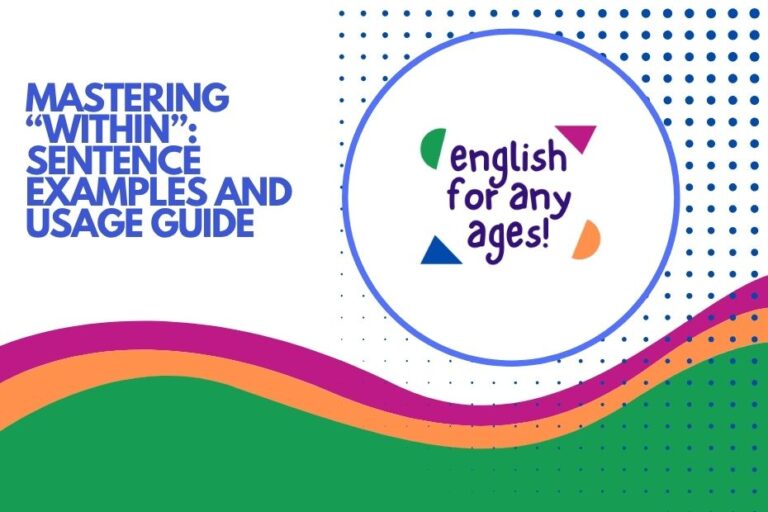Beyond Tired: Creative Ways to Say “I Had a Long Day”
Communicating how you feel after a demanding day is a common need, but relying solely on the phrase “I had a long day” can become repetitive and fail to convey the nuances of your experience. Expanding your vocabulary to express varying degrees of exhaustion and the specific challenges you faced not only enriches your language skills but also allows you to connect more authentically with others.
This article explores a wide range of alternative expressions, from simple synonyms to more colorful and descriptive idioms, providing you with the tools to articulate your experiences with greater precision and flair. Whether you’re a student aiming to improve your English fluency or a professional seeking to enhance your communication skills, mastering these expressions will undoubtedly make your conversations more engaging and impactful.
Table of Contents
- Introduction
- Definition: Expressing Fatigue and Exertion
- Structural Breakdown of Common Phrases
- Types and Categories of Expressions
- Examples of Alternatives to “I Had a Long Day”
- Usage Rules and Considerations
- Common Mistakes to Avoid
- Practice Exercises
- Advanced Topics: Nuances and Context
- Frequently Asked Questions
- Conclusion
Definition: Expressing Fatigue and Exertion
The phrase “I had a long day” is a common and straightforward way to communicate that you experienced a day filled with activity, work, or challenges that left you feeling tired and possibly stressed. It functions as a general statement indicating a state of fatigue resulting from prolonged exertion, be it physical, mental, or emotional.
The expression is universally understood in English-speaking contexts and serves as a polite and concise way to explain a lack of energy or enthusiasm. However, its simplicity can sometimes limit its effectiveness in conveying the specific nature or intensity of the experience.
From a grammatical perspective, “I had a long day” is a simple past tense declarative sentence. “I” is the subject, “had” is the past tense of the verb “to have,” “a” is an indefinite article, “long” is an adjective modifying “day,” and “day” is the noun.
The phrase operates within everyday conversation, professional settings, and informal interactions. To enhance communication, it is important to learn more expressive alternatives that add depth and detail.
Structural Breakdown of Common Phrases
Understanding the structure of alternative phrases can help you use them correctly and adapt them to different situations. Here’s a breakdown of common patterns:
- Subject + Verb + Adjective/Adverb + Noun/Phrase: This is the most common structure, similar to “I had a long day.” Examples include “I’m completely exhausted” or “I’ve been working non-stop.”
- Subject + Verb + Past Participle: This structure emphasizes the result of the day’s activities. Examples include “I’m worn out” or “I’m drained.”
- Idiomatic Expressions: These phrases often have a figurative meaning and don’t follow a strict grammatical structure. Examples include “I’m running on fumes” or “I’m beat.”
- Descriptive Phrases: These phrases provide more detail about the day’s events. Examples include “It was a whirlwind of meetings” or “I was putting out fires all day.”
By recognizing these structural patterns, you can better understand how different phrases convey meaning and how to construct your own variations.
Types and Categories of Expressions
Here’s a breakdown of the different types of expressions you can use instead of “I had a long day,” categorized by their style and level of formality:
Simple Alternatives
These are straightforward and easy-to-understand phrases that directly convey tiredness. They are suitable for most situations, from casual conversations to professional settings.
These alternatives maintain a level of simplicity while still offering a change from the standard phrase.
Idiomatic Expressions
Idioms are phrases whose meanings cannot be understood from the literal meanings of the individual words. They add color and personality to your language but should be used with caution in formal settings, as their meaning is often culturally specific.
Understanding the context and audience is key when using idiomatic expressions.
Descriptive Phrases
These phrases provide more detail about the activities or challenges that made the day long. They allow you to be more specific about your experience and can help others understand why you’re feeling tired.
Descriptive phrases offer a way to elaborate on the nature of your day without simply stating that it was “long.”
Figurative Language
Figurative language uses metaphors, similes, and other literary devices to create a vivid image of your exhaustion. These expressions are often more impactful but require careful consideration of your audience and the context.
Overuse of figurative language can sound dramatic or insincere, so it’s important to use it judiciously.
Examples of Alternatives to “I Had a Long Day”
Here are numerous examples of how to express that you had a long day, categorized by type:
Simple Alternatives Examples
These alternatives are direct and easy to understand, suitable for various settings.
The following table provides a comprehensive list of simple alternatives to “I had a long day,” showcasing their clear and straightforward nature. Each example is designed to be easily understood in both formal and informal contexts, making them versatile options for expressing fatigue.
| Simple Alternative | Example Sentence |
|---|---|
| I’m tired. | I’m really tired after all that work. |
| I’m exhausted. | I’m exhausted; I need to rest. |
| I’m worn out. | I’m worn out from running errands all day. |
| I’m fatigued. | I’m quite fatigued after the marathon. |
| I’m beat. | I’m beat; I just want to go to bed. |
| I’m pooped. | I’m pooped after that hike. |
| I’m drained. | I’m drained from all the meetings. |
| I’m sleepy. | I’m sleepy after studying all night. |
| I’m bushed. | I’m bushed after working in the garden. |
| I’m weary. | I’m weary from traveling. |
| I’ve had a tiring day. | I’ve had a tiring day at the office. |
| It was a long day. | It was a long day, but we got everything done. |
| I’m feeling tired. | I’m feeling tired and need a break. |
| I need to rest. | I need to rest after that intense workout. |
| I’m ready for bed. | I’m ready for bed; it’s been a long one. |
| I’m running on empty. | I’m running on empty; I need to eat. |
| I’m spent. | I’m spent after finishing the project. |
| I’m knackered. | I’m knackered after the football match. |
| I’m fried. | I’m fried after debugging code all day. |
| I’m wiped out. | I’m wiped out after cleaning the house. |
| I’m sapped. | I’m sapped of all energy. |
| I’m flagging. | I’m flagging; can we take a break? |
| I’m beat to the socks. | I’m beat to the socks after the hike. |
Idiomatic Expressions Examples
These phrases add color to your language and often provide a more vivid description of your exhaustion.
The following table showcases a variety of idiomatic expressions that creatively convey the feeling of having a long and tiring day. These phrases often rely on figurative language and cultural context, adding depth and color to your communication.
Each example is accompanied by a sentence to illustrate its usage.
| Idiomatic Expression | Example Sentence |
|---|---|
| I’m running on fumes. | I’m running on fumes; I don’t know how much longer I can keep going. |
| I’m at the end of my rope. | I’m at the end of my rope with all these demands. |
| I’m fried. | After that exam, I’m completely fried. |
| I’m beat to a pulp. | I’m beat to a pulp after moving all those boxes. |
| I’m dead on my feet. | I’m dead on my feet after working that double shift. |
| I’m fit to drop. | I’m fit to drop after chasing the kids around all day. |
| I’m hanging by a thread. | I’m hanging by a thread; I need a vacation. |
| I’ve hit a wall. | I’ve hit a wall with this project; I can’t focus anymore. |
| I’m ready to drop. | I’m ready to drop; can we stop for a coffee? |
| I’m pooped out. | I’m pooped out from all the yard work. |
| I’m bushed out. | I’m bushed out after that long presentation. |
| I’m wiped. | I’m wiped after cleaning the entire house. |
| I’m totally zonked. | I’m totally zonked after that transatlantic flight. |
| I’m all in. | I’m all in; I can’t do another thing tonight. |
| I’m feeling the strain. | I’m feeling the strain of working overtime. |
| I’m stretched thin. | I’m stretched thin with all my responsibilities. |
| I’m running on empty. | I’m running on empty; I need some fuel. |
| I’m cooked. | I’m cooked after working in the sun all day. |
| I’m knackered. | I’m completely knackered after climbing that mountain. |
| I’m shagged out. | I’m shagged out after the intense training session. |
| I’m cream-crackered. | I’m cream-crackered after the long drive. |
| I’m absolutely whacked. | I’m absolutely whacked after dealing with that crisis. |
| I’m completely shattered. | I’m completely shattered after the marathon. |
Descriptive Phrases Examples
These phrases provide more context and detail about why your day was long, helping others understand the nature of your exhaustion.
The following table provides detailed descriptive phrases that go beyond simply stating “I had a long day.” These phrases offer insights into the specific activities or challenges that contributed to the feeling of exhaustion, allowing for a more nuanced and empathetic response from listeners. Each example is designed to provide context and paint a clearer picture of the day’s events.
| Descriptive Phrase | Example Sentence |
|---|---|
| It was a whirlwind of activity. | It was a whirlwind of activity from morning till night. |
| I was putting out fires all day. | I was putting out fires all day at work. |
| I had back-to-back meetings. | I had back-to-back meetings, so I barely had time to eat. |
| I was dealing with crises all day. | I was dealing with crises all day, which was very stressful. |
| I was swamped with work. | I was swamped with work and couldn’t catch a break. |
| I had a mountain of paperwork to get through. | I had a mountain of paperwork to get through, and it felt endless. |
| It was a non-stop day. | It was a non-stop day; I didn’t even have time for a coffee. |
| I was running around all day. | I was running around all day, trying to get everything done. |
| I was up since dawn working. | I was up since dawn working on the project. |
| I didn’t sit down all day. | I didn’t sit down all day; I was constantly on my feet. |
| The day just flew by, but it was exhausting. | The day just flew by, but it was exhausting trying to keep up. |
| I was multitasking like crazy. | I was multitasking like crazy to meet all the deadlines. |
| I was juggling multiple projects. | I was juggling multiple projects, which was incredibly demanding. |
| I was working against the clock. | I was working against the clock to finish the report. |
| I was constantly on the go. | I was constantly on the go, attending meetings and answering emails. |
| I was burning the candle at both ends. | I was burning the candle at both ends to get everything completed. |
| I was pushed to my limit. | I was pushed to my limit with the endless demands. |
| I was stretched beyond my capacity. | I was stretched beyond my capacity trying to manage everything. |
| I had to wear multiple hats today. | I had to wear multiple hats today, dealing with different roles. |
| I felt like I was running a marathon. | I felt like I was running a marathon, trying to keep up with everything. |
| I was fighting an uphill battle all day. | I was fighting an uphill battle all day to get the project approved. |
| I had to navigate a minefield of issues. | I had to navigate a minefield of issues to resolve the problems. |
Figurative Language Examples
These expressions use metaphors and similes to create a more impactful and imaginative description of your fatigue.
The following table presents examples of figurative language used to describe the experience of having a long and tiring day. These expressions employ metaphors, similes, and other literary devices to create vivid and memorable images of fatigue and exhaustion.
Each example is designed to evoke a strong emotional response and add a layer of creativity to your communication.
| Figurative Expression | Example Sentence |
|---|---|
| I feel like I’ve been through the wringer. | I feel like I’ve been through the wringer after dealing with that difficult client. |
| I feel like I’ve aged ten years today. | I feel like I’ve aged ten years today after all that stress. |
| My brain feels like mush. | My brain feels like mush after all those calculations. |
| I feel like a zombie. | I feel like a zombie after that all-nighter. |
| My energy is completely depleted. | My energy is completely depleted after that intense workout. |
| I feel like I’ve run a marathon. | I feel like I’ve run a marathon, even though I just sat at my desk all day. |
| I’m running on fumes. | I’m running on fumes, like a car about to stall. |
| I feel like a deflated balloon. | I feel like a deflated balloon after that disappointing news. |
| My batteries are completely drained. | My batteries are completely drained after that long meeting. |
| I’m as limp as a dishrag. | I’m as limp as a dishrag after cleaning the whole house. |
| I feel like I’ve been hit by a truck. | I feel like I’ve been hit by a truck after that intense training session. |
| I’m running on empty. | I’m running on empty, like a car with no gas. |
| My mind is a blank slate. | My mind is a blank slate after studying all day. |
| I feel like I’m dragging myself through mud. | I feel like I’m dragging myself through mud, trying to stay awake. |
| I’m like a squeezed-out lemon. | I’m like a squeezed-out lemon after dealing with that difficult project. |
| I feel like I’m swimming through treacle. | I feel like I’m swimming through treacle, trying to get things done. |
| I’m like a worn-out shoe. | I’m like a worn-out shoe after walking all day. |
| I feel like I’m wading through molasses. | I feel like I’m wading through molasses, struggling to stay focused. |
| I’m as tired as a newborn baby after crying all day. | I’m as tired as a newborn baby after crying all day. |
Usage Rules and Considerations
When choosing an alternative to “I had a long day,” consider the following:
- Context: Is it a formal or informal setting? Choose expressions appropriate for the environment.
- Audience: Who are you speaking to? Avoid idioms or slang that may not be understood by everyone.
- Intensity: How tired are you? Select an expression that accurately reflects your level of exhaustion.
- Specificity: Do you want to provide more detail about your day? Use descriptive phrases to explain what made the day long.
Understanding these factors will help you choose the most effective and appropriate way to communicate your feelings.
Common Mistakes to Avoid
Here are some common mistakes to avoid when using alternatives to “I had a long day”:
- Using idioms inappropriately: Avoid using idioms in formal settings where they may not be understood or may seem unprofessional.
- Overusing figurative language: Too much figurative language can sound dramatic or insincere. Use it sparingly for maximum impact.
- Misunderstanding idioms: Ensure you understand the correct meaning of an idiom before using it.
- Using slang in formal settings: Slang is generally inappropriate for professional or academic contexts.
The table below shows examples of common mistakes and how to correct them:
| Incorrect | Correct | Explanation |
|---|---|---|
| I’m feeling very blue after work. | I’m feeling quite tired after work. | “Feeling blue” means sad, not tired. |
| I’m dead. (in a formal meeting) | I’m quite exhausted. | “Dead” is too informal for a meeting. |
| I’m running on gas. | I’m running on fumes. | The correct idiom is “running on fumes.” |
| I had a day from hell. (in a professional email) | I had an exceptionally challenging day. | “Day from hell” is too informal for professional communication. |
| I’m beat to the socks! (to someone unfamiliar with the expression) | I’m extremely tired. | “Beat to the socks” might not be universally understood. |
Practice Exercises
Test your understanding with these practice exercises:
- Rewrite the following sentences using simple alternatives to “I had a long day”:
- I had a long day at work.
- She had a long day taking care of the kids.
- We had a long day traveling.
- He had a long day studying.
- They had a long day moving furniture.
- Rewrite the following sentences using idiomatic expressions:
- I’m very tired after that meeting.
- She’s exhausted from working overtime.
- We’re completely drained after the hike.
- He’s beat after playing basketball.
- They’re worn out from the marathon.
- Rewrite the following sentences using descriptive phrases:
- I had a long day because of all the meetings.
- She had a long day because she was putting out fires all day.
- We had a long day because we were swamped with work.
- He had a long day because he was running around all day.
- They had a long day because they were multitasking like crazy.
- Rewrite the following sentences using figurative language:
- I’m very tired after that stressful day.
- She’s exhausted from dealing with difficult customers.
- We’re completely drained after the intense workout.
- He’s beat after the emotionally taxing conversation.
- They’re worn out from the mentally exhausting project.
Answer Key:
- Simple Alternatives:
- I’m tired after work.
- She’s exhausted from taking care of the kids.
- We’re fatigued from traveling.
- He’s sleepy from studying.
- They’re worn out from moving furniture.
- Idiomatic Expressions:
- I’m at the end of my rope after that meeting.
- She’s fried from working overtime.
- We’re totally zonked after the hike.
- He’s beat to a pulp after playing basketball.
- They’re fit to drop after the marathon.
- Descriptive Phrases:
- I had a long day because I had back-to-back meetings.
- She had a long day because she was constantly putting out fires.
- We had a long day because we were swamped with work and couldn’t catch a break.
- He had a long day because he was running around trying to get everything done.
- They had a long day because they were juggling multiple projects.
- Figurative Language:
- I feel like I’ve been through the wringer after that stressful day.
- She feels like she has aged ten years after dealing with difficult customers.
- We feel like our batteries are completely drained after the intense workout.
- He’s like a squeezed-out lemon after the emotionally taxing conversation.
- They feel like they are swimming through treacle after the mentally exhausting project.
Complete the following table with appropriate alternatives to “I had a long day,” categorized by type:
| Type of Expression | Alternative Phrase |
|---|---|
| Simple Alternative | _________________________ |
| Idiomatic Expression | _________________________ |
| Descriptive Phrase | _________________________ |
| Figurative Language | _________________________ |
Answer Key: (Example Answers)
| Type of Expression | Alternative Phrase |
|---|---|
| Simple Alternative | I’m exhausted. |
| Idiomatic Expression | I’m running on fumes. |
| Descriptive Phrase | I had back-to-back meetings all day. |
| Figurative Language | I feel like I’ve been hit by a truck. |
Advanced Topics: Nuances and Context
For advanced learners, consider the subtle nuances of each expression and how they might be perceived in different cultural contexts. Some idioms may be specific to certain regions or age groups.
Pay attention to body language and tone of voice when communicating your fatigue, as these non-verbal cues can significantly impact your message.
Moreover, explore how these expressions translate into other languages. Understanding the cultural equivalents of “I had a long day” can provide valuable insights into cross-cultural communication and empathy.
Frequently Asked Questions
- Is it always appropriate to use idiomatic expressions in professional settings?
Not always. While idioms can add color to your language, they may not be universally understood and could be perceived as unprofessional in formal environments. It’s best to use them judiciously and consider your audience. If you’re unsure, opt for simpler, more direct alternatives.
- How can I tell if an idiom is appropriate for my audience?
Consider your audience’s background, familiarity with English, and the overall formality of the situation. If you’re speaking to someone who is not a native English speaker or if the context is highly professional, it’s safer to avoid idioms. When in doubt, choose clearer, more straightforward language.
- What’s the difference between “tired” and “exhausted”?
“Tired” is a general term indicating a need for rest. “Exhausted” implies a much greater level of fatigue, suggesting that you are completely drained of energy. The choice between the two depends on the intensity of your fatigue.
- How can I make my descriptions of a long day more engaging?
Use descriptive phrases and figurative language to paint a vivid picture of your experience. Instead of simply saying “I had a long day,” try saying “It was a whirlwind of meetings” or “I feel like I’ve been through the wringer.” These expressions add depth and interest to your communication.
- Are there any expressions that I should avoid using altogether?
Avoid using slang or overly informal expressions in professional or academic settings. Also, be cautious with idioms that have potentially offensive or culturally insensitive connotations. Always strive for clear, respectful, and appropriate language.
- How can I improve my vocabulary for describing fatigue?
Read widely, pay attention to how native speakers describe their experiences, and actively practice using new expressions in your own conversations and writing. Keep a vocabulary journal and look up synonyms and related phrases for common words like “tired” and “exhausted.”
- What if I am speaking with someone who struggles with English?
When speaking with non-native English speakers, it is best to avoid idioms or colloquialisms. Instead, use simple, clear language with direct phrasing. Saying “I am very tired” is better than “I am running on fumes” as the first is universally understood.
- Is it acceptable to say “I’m dead” when you mean “I’m tired”?
While some might use “I’m dead” casually to express extreme tiredness, it’s generally best to avoid this phrase, especially in formal or professional settings. It can be perceived as overly dramatic or even insensitive. Stick to more conventional expressions of fatigue.
Conclusion
Expanding your repertoire of expressions for conveying fatigue beyond the simple “I had a long day” is a valuable investment in your communication skills. By understanding the nuances of simple alternatives, idiomatic expressions, descriptive phrases, and figurative language, you can articulate your experiences with greater precision and impact.
Remember to consider the context, audience, and intensity of your fatigue when choosing the most appropriate expression. With practice and attention to detail, you can master these alternatives and enhance your ability to connect authentically with others.
Continue to explore new vocabulary and pay attention to how native speakers express themselves. The more you immerse yourself in the language, the more naturally these expressions will come to you.
Don’t be afraid to experiment and find the phrases that best reflect your personal style and experiences. By doing so, you’ll not only enrich your language skills but also deepen your understanding of the cultural nuances that shape communication.

